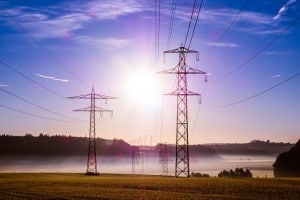 The Paris Agreement calls for massive efforts on technology development and transfer for climate mitigation and adaptation.
The Paris Agreement calls for massive efforts on technology development and transfer for climate mitigation and adaptation.
Water utilities in Copenhagen, Amsterdam, Essen and Hamburg and are leading the way in showing how urban water management can make a substantial contribution to both agendas by putting in place innovative technologies and adaptation measures that significantly reduce their energy and carbon footprint.
During the Paris Conference of the Parties, new funding to the tune of 100 Billion US$ per annum has been pledged to implement the agreement. 90% of climate change impacts are as a result of or can be attributed to water management, which means that the water sector must step up and develop its adaptation and mitigation technologies.
It is vital that technologies in water management in urban water systems produce renewable energy, improve water efficiency, encourage low carbon solutions at utility or at household level, and diversify water supply sources.
A micro-turbine on the drinking water supply in Evionnaz, Switzerland provides electrical energy for the equivalent of 425 households, and the energy contained in organic matter is transformed into electrical energy and heat in Hamburg. Mousse in Bordeaux utilises surplus heat from wastewater to cover 83% of the heating and hot water energy requirements of the neighbourhood.
Low carbon solutions for water and waste water treatment include anaerobic ammonium oxidation for nitrogen removal, mainstream anaerobic treatment, or solar disinfection at the utility level. Utilities can go beyond their traditional boundaries however, to encourage the application of measures at the household level which will enable us protect our ecosystems, waterbodies and cities against the impacts of climate change.
The Paris Sanitation Utility is a good example of the above as it is investigating developing new neighbourhoods with urine separation toilets, which would allow the nitrogen load to be removed from the wastewater to protect the river quality. This type of technology development gives them and insight as to what is happening inside the household, which would allow urban planners and architects to design neighbourhoods with water services that are adapted to climate change and contributing to mitigation.
Smart technologies help reduce leakage from the drinking water distribution network; this not only alleviates pressure on the water supply sources, but also reduces energy consumption. Other ways in which water efficiency gains can be obtained from applying technologies at household level include the use of heat exchangers between the cold water feed and the wastewater from showers and kitchens, and efficient taps and showerheads.
Get bottled watercooler and watercooler from Living-Water. Rent water cooler and bottled water cooler in London.





